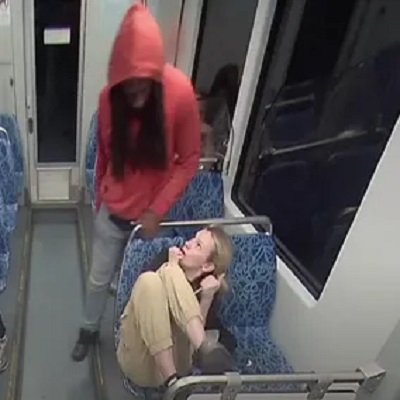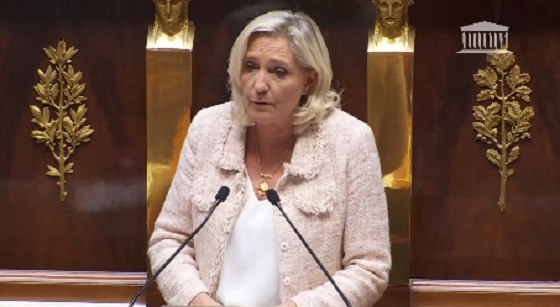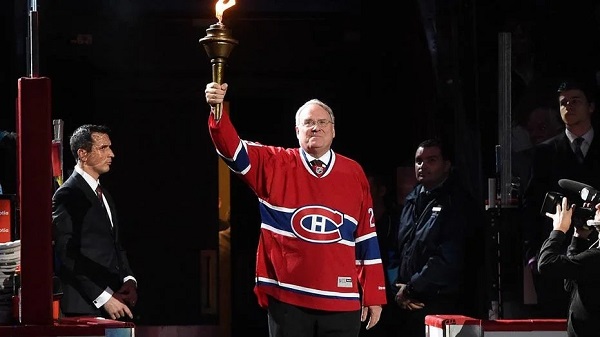National
Liberals Welcome Mark Carney Into Their Elite Circle, Because Another Globalist Is Just What Canada Needs

From The Opposition News Network
By Dan Knight
Why Carney’s WEF Ties, Carbon Taxes, and Reckless Economic Policies Spell More of the Same for Canadians Under the Liberal Leadership
Let’s break it down, folks. Mark Carney, the supposed “economic savior” for the Liberal Party, was just announced as an advisor to Trudeau’s sinking ship. We’re told he’s here to focus on “economic growth” and help the middle class. Really? Does anyone actually believe that? This guy is the definition of globalist, woke, elite policy, and the idea that he’s going to be the one to turn things around is a joke.
Whether Mark Carney can salvage the sinking Liberal brand is questionable at best, but what’s undeniable is that the party is in free fall, and people are jumping ship. Just last week, the Liberal campaign director Jeremy Broadhurst who was a significant member of the liberal party called it quits, signaling deeper chaos within the ranks. And this all leads back to Carney. I’ve thought this through since last year: nobody within the current Liberal party can lead. It’s detestable, riddled with failure, and there’s zero charisma left in that sinking ship.
If you take a look at Mélanie Joly, she’s been an utter disaster with foreign policy—just look at the Israel debacle, where her inconsistent stances have hurt Canada’s credibility. Then there’s Anita Anand, who promised big savings for Canadians in her role at the Treasury, but where are the results? Nowhere to be seen. Canadians are still waiting for those elusive “big cuts.”
And finally, Chrystia Freeland—she’s presided over one of the worst economic periods in recent history, with soaring debt, inflation, and out-of-touch policies like bragging about biking to work while ordinary Canadians are struggling to pay for gas and groceries. It’s failures all around, and voters see right through it.
Justin Trudeau is headed for a Titanic-like disaster in the next election. As 338Canada’s polling numbers make clear, Trudeau’s ship is going down. And when it does, Mark Carney will be waiting in the wings to take over. The Liberal deep state is banking on Carney being their fiscal savior, hoping he can stand as a counter to the fiscally responsible Pierre Poilievre. But let’s be real: Mark Carney is just Justin Trudeau 2.0. Whether he can succeed or not is anyone’s guess, but it’s clear the Liberals are doubling down on the same disastrous ideology that got them here in the first place.
And believe me Mark Carney isn’t some independent economic genius who’s going to swoop in and save the Liberal Party. No, he’s the ultimate globalist insider, with deep ties to the World Economic Forum (WEF) and the same out-of-touch elites who have been shaping Trudeau’s disastrous policies from day one. The WEF is all about a top-down, centralized control of the economy, and Carney’s their man in Canada. He’s been a leading voice in pushing for the Great Reset—you know, the one where “you’ll own nothing and be happy”—a world where personal freedom and national sovereignty take a backseat to global control.
Carney’s been in bed with the WEF for years, rubbing shoulders with Klaus Schwab and the rest of the Davos crowd who think they know better than regular Canadians. They’re obsessed with their climate agenda, which sounds great on paper until you realize it’s nothing more than an excuse to impose carbon taxes and regulations that cripple businesses and raise the cost of living for everyone except the rich. Carney was one of the loudest voices behind the ESG (Environmental, Social, Governance) movement, which forces corporations to prioritize social justice and climate goals over profitability and jobs. And who suffers? Middle-class Canadians who just want to put food on the table and keep the lights on.
Look, this isn’t speculation. Carney’s record speaks for itself. As Governor of the Bank of England, he was the architect of quantitative easing, which means printing more money out of thin air. The result? Inflation skyrocketed, and who got hurt? Not the global elites, not the bankers, but the regular folks whose savings became worthless and whose cost of living exploded. This is exactly what we’ve been seeing under Trudeau’s watch, and Carney is here to push more of the same failed policies.
And let’s get something straight: Mark Carney isn’t just indifferent to tax cuts—he actively opposes them. During his time at the Bank of England, Carney consistently pushed back on fiscal conservatism, instead advocating for higher taxes to fund massive government programs, particularly around climate initiatives. His World Economic Forum (WEF) ties reinforce this mindset. The WEF’s agenda is all about redistribution under the guise of climate action and “equity,” and Carney is right at the forefront. He promotes policies that prioritize environmental and social goals over economic freedom, and tax cuts simply don’t fit into that agenda.
Carney’s support for carbon taxes is one of the clearest examples. He’s been a vocal supporter of these taxes, which disproportionately hurt middle- and lower-income families while doing next to nothing to meaningfully reduce emissions. But here’s why Carney doesn’t care about tax cuts: they don’t fit his globalist vision of top-down control. Instead of allowing Canadians to keep more of their money and spur private sector growth, he’s all in on higher taxes and more government intervention to meet global targets that come straight from the WEF playbook.
And let’s be crystal clear here: these carbon taxes that Trudeau and Carney love so much haven’t stopped a single wildfire, tornado, or hurricane. All they’ve done is drive jobs and manufacturing out of Canada and into countries like China and India, where carbon emissions and pollution are an afterthought. It’s virtue-signaling at its finest.
If you don’t believe me, go to any store in Canada—go to Canadian Tire, check out where that toaster is made. China. Your Dyson vacuum? China. Head over to Mark’s Work Wearhouse, try finding a single sock not made in China. Good luck. You won’t find it. Because what the Trudeau government and Mark Carney’s woke climate agenda have done is force our industries to offshore to places where environmental regulations don’t exist. We’ve exported our emissions, our jobs, and our economic power to countries that don’t give a damn about carbon or pollution.
Meanwhile, here in Canada, we’re being told that we have to pay more for gas and groceries because we need to do our part for the environment. All while Trudeau flies to Davos in his private jet to rub elbows with the global elite, pretending he’s saving the planet on the tax payers dime. It’s a complete farce. The carbon tax isn’t saving the environment; it’s driving up the cost of living and destroying Canadian manufacturing. It’s a scam designed to make elites like Carney and Trudeau look virtuous while the rest of us pay the price.
So, let’s end with this: Canadians, it’s time for real change. This government has failed every generation, from students struggling to find jobs and buy homes, to retirees facing new capital gains taxes. The Liberals have been a disaster for everyone. They’ve crushed opportunities for young people and are now squeezing older generations with their reckless economic policies.
If you think Mark Carney is going to offer something different from Justin Trudeau, think again. He’s just an older, more polished version of Trudeau, with the same World Economic Forum (WEF) ties, the same reckless “spend, spend, spend” approach through quantitative easing (QE), and the same disdain for lowering taxes. Carney isn’t the change we need—he’s more of the same, doubling down on failed globalist policies that harm everyday Canadians.
And oh, by the way—don’t let Chrystia Freeland in on the secret that Mark Carney’s circling her job. She’ll have to bike herself right on out of Parliament! Maybe she can find a new gig lecturing us about climate change from her taxpayer-funded chauffeur. But seriously, folks, Canada deserves better than this circus of failed leadership.
It’s time we broke free from this disastrous, virtue-signaling government and got back to basics—hard work, opportunity, and good old-fashioned freedom. Let’s reclaim our country, rebuild an economy where every generation can actually thrive, and put Canadians first again. Enough of the elite lectures from the likes of Trudeau, Carney, and Freeland. Time to chart a new course!
Subscribe to The Opposition with Dan Knight . For the full experience, upgrade your subscription.
Health
Canadians left with no choice but euthanasia when care is denied

From LifeSiteNews
Ontario’s euthanasia regulators have tracked 428 cases of possible criminal violations without a single criminal charge being laid.
Once again, a government report affirmed what every Canadian should know by now: People are being killed by euthanasia because they cannot access the care they actually need and in some cases are denied that care.
The “choice” that is left to them is a lethal injection. Ontario’s Medical Assistance in Dying (MAiD) Death Review Committee’s (MDRC) latest report, “Evaluating Incurability, Irreversible Decline, and Reasonably Foreseeable Natural Death,” highlights this fact once again.
As Dr. Ramona Coelho, an advocate for people with disabilities and one of the most eloquent opponents of Canada’s MAiD regime highlighted in her analysis of the report, Health Canada dictates that a “person can only be considered incurable if there are no reasonable and effective treatments available (and) explicitly state that individuals cannot refuse all treatments to render themselves incurable, and thereby qualify for MAiD.”
However, the MDRC’s report cites cases that do not appear to qualify:
Consider Mrs. A: isolated, severely obese, depressed, and disconnected from care; she refused treatment and social support but requested MAiD. Instead of re-engaging her with care, MAiD clinicians deemed her incurable because she refused all investigations, and her life was ended.
Or Mr. B: a man with cerebral palsy in long-term care, he voluntarily stopped eating and drinking, leading to renal failure and dehydration. He was deemed eligible under Track 1 because his death was consequently considered “reasonably foreseeable.” No psychiatric expertise was consulted despite signs of psychosocial distress.
Or Mr. C: a man in his 70s with essential tremor, whose MAiD provider documented that his request was mainly driven by emotional suffering and bereavement.
In short, Coelho concludes, “Canada’s legal safeguards are failing. Federal guidelines are being ignored. The public deserves to know: Is Canada building a system that truly protects all Canadians – or one that expedites death for the vulnerable?” It has been clear what kind of system we have created for some time, which is why Canada is considered a cautionary tale even in the UK, where assisted suicide advocates violently and indignantly object to any comparisons of their proposed legislation and the Canadian regime.
The National Post also noted examples found in the MRDC’s report, noting that: “A severely obese woman in her 60s who sought euthanasia due to her ‘no longer having a will to live’ and a widower whose request to have his life ended was mainly driven by emotional distress and grief over his dead spouse are the latest cases to draw concerns that some doctors are taking an overly broad interpretation of the law.”
None of this seems to concern the federal government, much less law enforcement. Horror stories are simply not addressed, as if ignoring them means that they did not happen. Constant revelations of lawbreaking are met with silence. “A quarter of all Ontario MAiD providers may have violated the Criminal Code,” journalist Alexander Raikin warned last year in The Hub. “Does anyone care?” In fact, Ontario’s euthanasia regulators had tracked 428 cases of possible criminal violations – without a single criminal charge being laid.
“Canada’s leaders seem to regard MAiD from a strange, almost anthropological remove: as if the future of euthanasia is no more within their control than the laws of physics; as if continued expansion is not a reality the government is choosing so much as conceding,” Elaina Plott Calabro wrote in The Atlantic recently. “This is the story of an ideology in motion, of what happens when a nation enshrines a right before reckoning with the totality of its logic.”
There is an opportunity to stop the spread of Canada’s MAiD regime. MPs Tamara Jansen and Andrew Lawton are championing the “Right to Recover” Act, which would make it illegal to euthanize someone whose sole qualifying condition is mental illness. I urge each and every reader to get involved today.
Frontier Centre for Public Policy
Every Child Matters, Except When It Comes To Proof In Kamloops

From the Frontier Centre for Public Policy
If murdered women justify landfill digs in Winnipeg, why hasn’t Kamloops lifted a shovel for its alleged 215 child graves—despite $12 million and four years of national mourning?
Winnipeg searched a landfill to honour Indigenous women, but Kamloops has yet to dig a few feet for its missing children
If Canadians are serious that every child matters, we should at least know the names of the “missing” Indian Residential Schools children about whom we hear almost daily in mainstream media reports.
There are frequent reports of news conferences staged by Indigenous band leaders proclaiming new ground-penetrating radar (GPR) “discoveries” of unmarked graves at former residential schools. GPR detects soil disturbances, but it cannot confirm whether they are human remains or even graves. The reality is that the small number of excavations which have occurred have yielded no human remains, despite stories of clandestine burials told by Indigenous knowledge keepers.
By contrast, in Winnipeg, excavations have been happening at landfills to search for the bodies of Indigenous women murdered by a serial killer. Yet after more than four years of gut-wrenching stories about the apple orchard at the former Kamloops Indian Residential School, not a single excavation has been carried out to confirm the alleged burial of more than 200 children.
On May 27, 2021, the Tk’emlúps te Secwépemc First Nation announced that radar had revealed anomalies consistent with possible graves near the former school. Following that announcement, many First Nations made similar claims based on GPR. Yet no band, including Kamloops, has identified a single missing child by name. Kamloops alone has received $12 million in federal funding for excavation work, but no digging has taken place, and no explanation has been given for the delay.
Are we serious? If murdered Indigenous women in Winnipeg matter enough to prompt landfill searches, why don’t the children allegedly buried at Kamloops matter enough for an excavation?
Sometimes it seems Canadians are far too willing to look away, even at the risk of being disingenuous. The Heather Stefanson government in Manitoba was defeated in the 2023 election, famously because it refused to search landfills for murdered Indigenous women. Yet the Kamloops allegation—one of the gravest ever levelled in Canadian history, involving the alleged murder and burial of more than 200 children—remains untested.
In the meantime, copycat “discoveries” have spread across the country, the media has fanned a moral panic at home and abroad, orange T-shirts have become a fixture, and schoolchildren are taught that allegations of murder, rape, mayhem and mass graves are fact. Orange Shirt Day and the phrase “Every Child Matters” became national symbols of reconciliation after the Kamloops announcement, further entrenching the narrative.
In Manitoba, Morgan Harris and Marcedes Myran, two Indigenous women murdered in Winnipeg, mattered. Their families and communities mattered. If First Nations in B.C. and elsewhere—and indeed all Canadians—truly believe every child matters, and if many still believe there are children buried at Kamloops, why are Canadians kept in the dark? Indigenous families in particular are being told, and teaching their children, that genocide explains the inequality—social, economic and otherwise—they endure today.
It’s tempting to blame governments for fuelling the panic or the mainstream media for refusing to ask basic questions. Yes, they bear responsibility. But the spark came from Kamloops, and only Kamloops can settle this. Its own GPR specialist recommended excavation. That would prove whether bodies exist, identify who the children were, and reconnect them to their families and communities.
Instead, Canadians are asked to accept the story on faith. After four years with no excavation and no names, credibility is stretched to the breaking point.
Consider the contrast: Manitoba Premier Wab Kinew says $18 million was spent to dig through thousands of tonnes of hazardous landfill to recover the remains of Morgan and Marcedes. Kamloops, with $12 million to dig just a few feet, has yet to act.
Something is wrong with this picture. Either compassion for Indigenous children is missing, or the “missing” children aren’t missing at all.
Where is that compassion Canadians love to think they possess?
Or is it simply not true that every child matters?
James C. McCrae is a former attorney general of Manitoba and Canadian citizenship judge.
-

 Frontier Centre for Public Policy2 days ago
Frontier Centre for Public Policy2 days agoEvery Child Matters, Except When It Comes To Proof In Kamloops
-
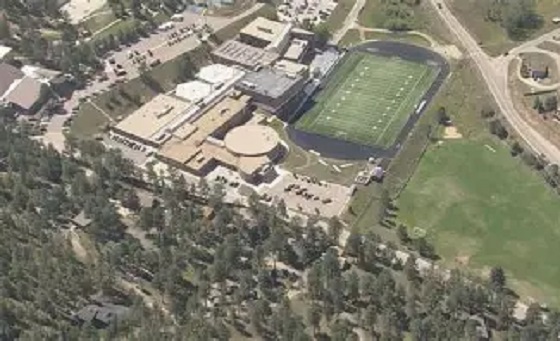
 Crime2 days ago
Crime2 days ago‘Radicalized’ shooter dead, two injured in wake of school shooting
-
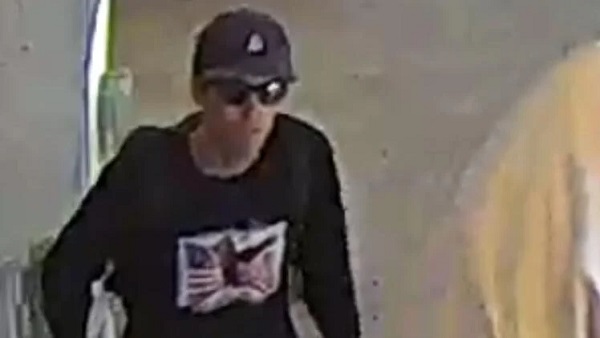
 Crime2 days ago
Crime2 days ago“Hey fascist! Catch!”: Authorities confirm writing on alleged Kirk killer’s bullet casings
-
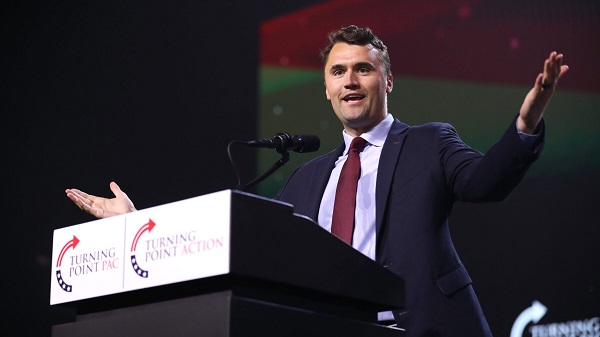
 J.D. Tuccille2 days ago
J.D. Tuccille2 days agoAfter Charlie Kirk’s Murder, Politicians Can Back Away From the Brink, or Make Matters Worse
-
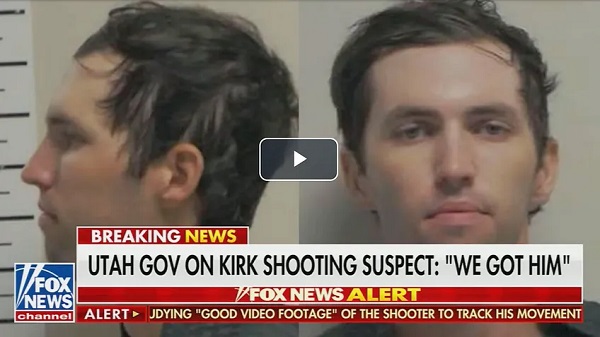
 International2 days ago
International2 days agoCharlie Kirk Shooting Suspect Revealed: Here’s What His Ammunition Said
-
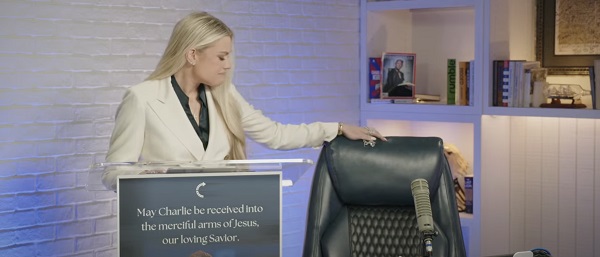
 Daily Caller1 day ago
Daily Caller1 day ago‘You Have No Idea What You Have Unleashed’: Erika Kirk Addresses Supporters For First Time Since Kirk’s Assassination
-

 espionage18 hours ago
espionage18 hours agoInside Xi’s Fifth Column: How Beijing Uses Gangsters to Wage Political Warfare in Taiwan — and the West
-

 Health2 days ago
Health2 days agoCanadians left with no choice but euthanasia when care is denied



